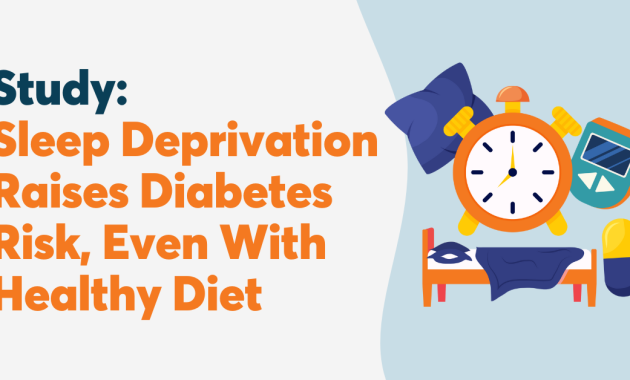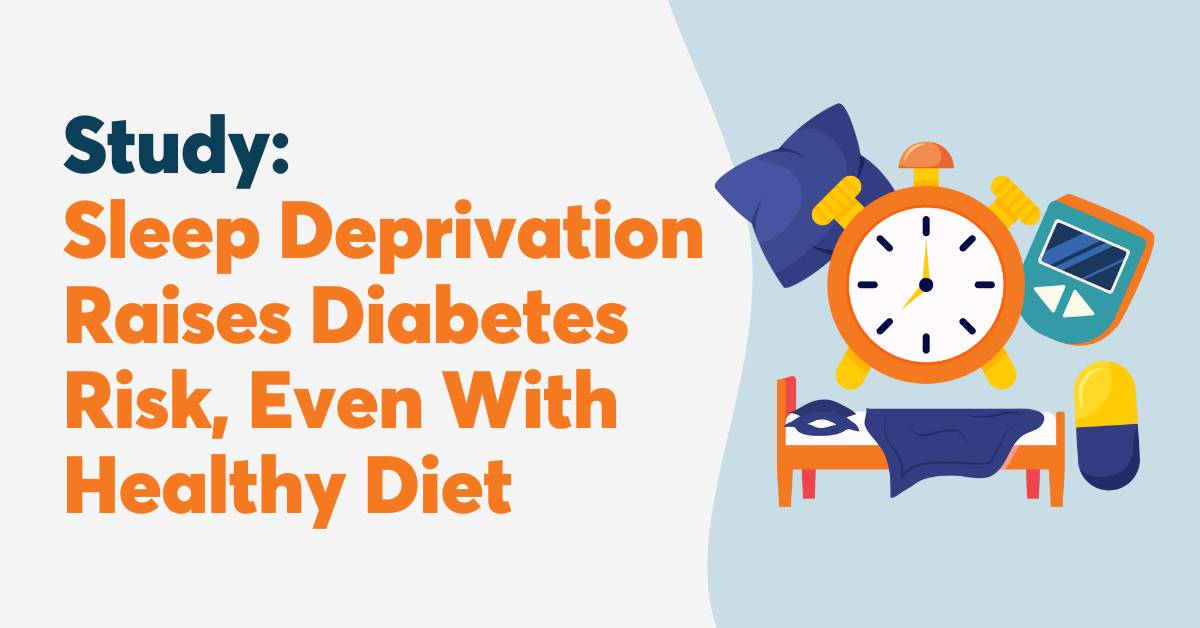
How to Reverse Diabetes: Simple Sleep Habits That Make a Difference
The battle against diabetes is a complex one, but recent research suggests that something as fundamental as sleep may hold a significant key to reversing its effects. For years, medical professionals have focused on diet, exercise, and medication to manage and treat diabetes. However, a growing body of evidence points to the often-overlooked importance of sleep in regulating blood sugar levels and overall metabolic health. This article will delve into how to reverse diabetes with simple sleep habits, providing actionable insights and evidence-based strategies to improve your health.
The Link Between Sleep and Diabetes: A Closer Look
The relationship between sleep and diabetes is not merely correlational; it’s a complex interplay of hormonal and metabolic processes. When we sleep, our bodies undergo a period of repair and regulation. Disruptions to this process, such as those caused by sleep deprivation or poor sleep quality, can have a cascade effect on several key metabolic functions, increasing the risk of developing diabetes. The core issue is that inadequate sleep leads to insulin resistance.
Insulin resistance is a condition where cells in the body become less responsive to insulin, a hormone that helps glucose (sugar) enter cells for energy. When cells resist insulin, glucose builds up in the bloodstream, leading to hyperglycemia (high blood sugar) and, eventually, type 2 diabetes. Sleep deprivation can impair glucose metabolism in several ways, including increasing the production of stress hormones like cortisol, which further exacerbates insulin resistance. Lack of sleep also impacts the release of hormones like leptin and ghrelin, which regulate appetite and can lead to weight gain, a significant risk factor for diabetes. The good news is that by focusing on sleep habits, it is possible to address these underlying issues and potentially reverse the progression of diabetes.
Simple Sleep Habits for Better Blood Sugar Control
Implementing effective sleep habits does not require drastic lifestyle changes. Often, small adjustments can make a significant difference. Here are some simple yet effective strategies to improve your sleep and potentially reverse the effects of diabetes.
Prioritize a Consistent Sleep Schedule
One of the most crucial aspects of improving sleep quality is maintaining a consistent sleep schedule. This means going to bed and waking up at the same time every day, including weekends, as much as possible. This consistency helps regulate your body’s natural sleep-wake cycle, also known as the circadian rhythm. A well-regulated circadian rhythm can optimize the production of hormones that regulate sleep and blood sugar. Aim for seven to nine hours of quality sleep each night to maximize the benefits. A consistent sleep schedule is a foundational habit on how to reverse diabetes naturally.
Create a Relaxing Bedtime Routine
Preparing your mind and body for sleep can significantly improve sleep quality. Establish a relaxing bedtime routine that signals to your body that it’s time to wind down. This routine might include taking a warm bath or shower, reading a book, listening to calming music, or practicing relaxation techniques such as deep breathing or meditation. Avoid screen time (phones, tablets, computers) for at least an hour before bed, as the blue light emitted from these devices can interfere with melatonin production, a hormone that regulates sleep. This routine helps to promote relaxation and prepare your body for restful sleep. This is another way to improve on how to reverse diabetes.
Optimize Your Sleep Environment
The environment in which you sleep plays a crucial role in sleep quality. Ensure your bedroom is conducive to sleep by making it dark, quiet, and cool. Use blackout curtains to block out light, earplugs or a white noise machine to minimize noise, and adjust the thermostat to a comfortable temperature (typically around 60-67 degrees Fahrenheit). The right sleep environment can significantly improve your sleep and overall health. Remember, a good sleep environment is a vital part of how to reverse diabetes.
Watch What You Eat and Drink Before Bed
What you consume before bedtime can impact your sleep quality. Avoid caffeine and alcohol close to bedtime, as these substances can disrupt sleep. Caffeine is a stimulant that can keep you awake, while alcohol can initially make you feel sleepy but often leads to fragmented sleep later in the night. Also, avoid large meals or sugary snacks before bed, as they can cause blood sugar spikes and make it harder to fall asleep. Instead, consider a light, healthy snack like a handful of nuts or a small piece of fruit, if necessary. Proper nutrition and sleep are two key aspects of how to reverse diabetes.
Manage Stress and Anxiety
Stress and anxiety can significantly interfere with sleep. Find healthy ways to manage stress, such as exercise, yoga, meditation, or spending time in nature. Consider practicing mindfulness techniques or journaling to help quiet your mind before bed. If stress or anxiety is a persistent problem, consider seeking professional help from a therapist or counselor. Addressing stress and anxiety is a crucial part of how to reverse diabetes.
How to Reverse Diabetes: Practical Steps for Implementation
Implementing these sleep habits is not just about understanding the principles; it’s about taking concrete steps to change your lifestyle. Here’s a practical guide to help you get started on your journey to better sleep and improved blood sugar control.
Assess Your Current Sleep Habits
Before making changes, take stock of your current sleep habits. Keep a sleep diary for a week or two, noting your bedtime, wake time, sleep duration, and any factors that might be affecting your sleep (e.g., caffeine intake, stress levels). This will give you a baseline to measure your progress and identify areas for improvement. Understanding your current habits is the first step on how to reverse diabetes.
Set Realistic Goals
Don’t try to overhaul your sleep habits overnight. Set realistic, achievable goals. Start with one or two changes at a time, and gradually incorporate other habits as you become more comfortable. This approach is more sustainable and can lead to long-term success. Setting realistic goals will help you on how to reverse diabetes.
Create a Sleep-Friendly Bedroom
Transform your bedroom into a sleep sanctuary. Invest in blackout curtains, comfortable bedding, and a white noise machine, if necessary. Make sure your bedroom is dark, quiet, and cool. A sleep-friendly bedroom is an important aspect of how to reverse diabetes.
Be Patient and Consistent
Changing sleep habits takes time and consistency. Don’t get discouraged if you don’t see results immediately. Stick with your new routine, and gradually, you should begin to experience improvements in your sleep and blood sugar control. Consistency is a key element of how to reverse diabetes.
Monitor Your Blood Sugar Levels
If you have diabetes or are at risk of developing it, monitor your blood sugar levels regularly. This will help you track your progress and see how your improved sleep habits are impacting your health. Consult with your doctor to determine the best way to monitor your blood sugar levels. Monitoring your blood sugar is an important step on how to reverse diabetes.
The Science Behind Sleep and Diabetes Reversal
The scientific evidence supporting the link between sleep and diabetes is compelling. Several studies have shown that sleep deprivation is strongly associated with insulin resistance and an increased risk of type 2 diabetes. Research published in the journal Diabetes Care found that even short-term sleep restriction can impair insulin sensitivity. Other studies have demonstrated that improving sleep quality can lead to significant improvements in blood sugar control and overall metabolic health. [See also: The Role of Sleep in Metabolic Health].
One study, published in the journal Sleep, examined the impact of sleep on individuals with prediabetes. The study found that participants who improved their sleep habits experienced significant improvements in their glucose tolerance and insulin sensitivity. These findings underscore the importance of sleep as a potential therapeutic target in the management and even reversal of diabetes. The scientific evidence supports the claim that through sleep habits, one can discover how to reverse diabetes.
Beyond Sleep: Complementary Strategies
While sleep is a cornerstone of diabetes management, it’s essential to consider other lifestyle factors. A holistic approach, which includes diet and exercise, will provide the best results. Consider the following complementary strategies, in conjunction with improved sleep habits, to optimize your health and potentially reverse diabetes.
Dietary Changes
Focus on a diet rich in whole, unprocessed foods, including fruits, vegetables, lean protein, and whole grains. Limit your intake of processed foods, sugary drinks, and saturated and trans fats. A balanced diet is critical for blood sugar control and overall health. [See also: Dietary Guidelines for Diabetes Management].
Regular Exercise
Engage in regular physical activity, such as walking, running, swimming, or cycling. Aim for at least 150 minutes of moderate-intensity exercise or 75 minutes of vigorous-intensity exercise per week. Exercise improves insulin sensitivity and helps regulate blood sugar levels. Exercise is a key factor in how to reverse diabetes.
Stress Management Techniques
Incorporate stress management techniques into your daily routine, such as meditation, yoga, or spending time in nature. Chronic stress can worsen insulin resistance. Find healthy ways to manage stress to support your health. Effective stress management contributes to how to reverse diabetes.
Consult Your Healthcare Provider
Always consult with your healthcare provider before making significant changes to your lifestyle or treatment plan. They can provide personalized advice and guidance based on your individual needs and medical history. Consult your doctor on how to reverse diabetes.
Conclusion: Sleep Your Way to Better Health
In conclusion, the power of sleep in managing and potentially reversing diabetes is undeniable. By prioritizing sleep and implementing simple, actionable habits, you can significantly improve your blood sugar control, reduce your risk of complications, and enhance your overall well-being. Remember, consistency and patience are key. Embrace these simple sleep habits, and take control of your health today. Understanding how to reverse diabetes starts with understanding the importance of sleep.
By focusing on sleep, you are taking a proactive step towards a healthier future. The journey on how to reverse diabetes is achievable with the correct habits and information.

